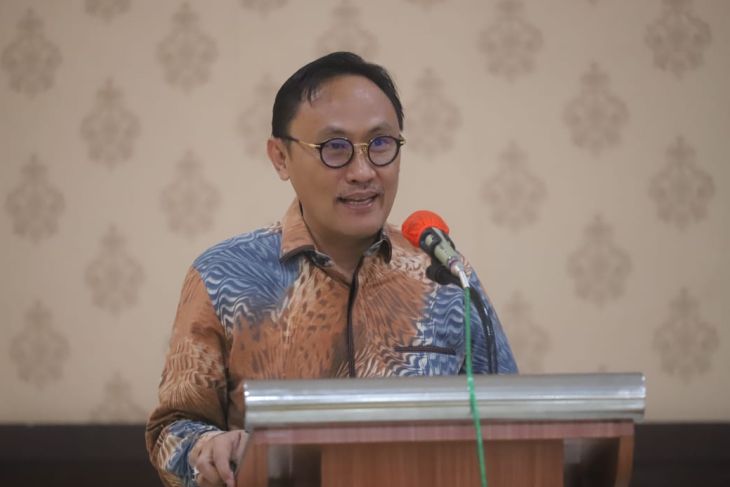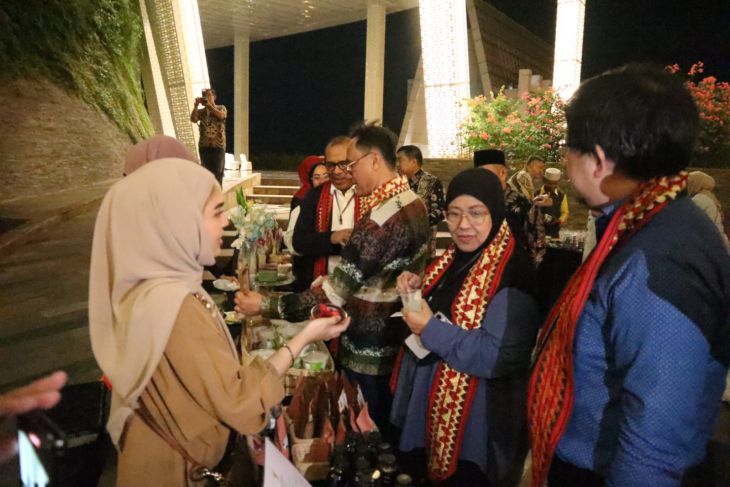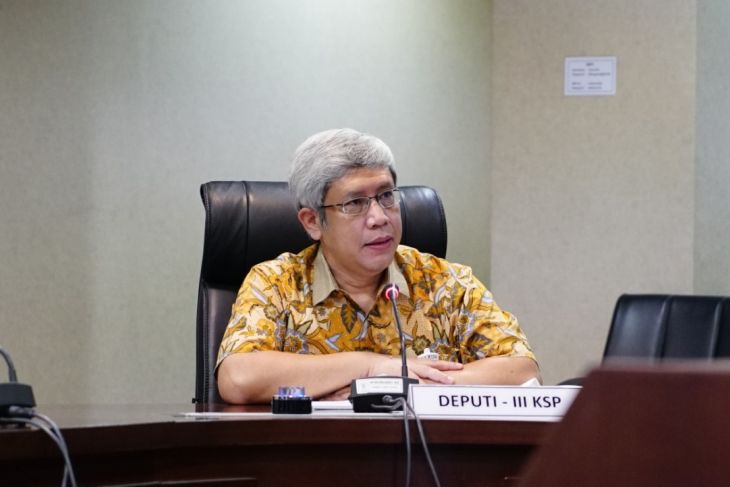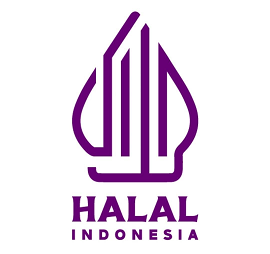
Head of the Halal Product Assurance Agency (BPJPH) of the Religious Affairs Ministry, Aqil Irham. (ANTARA/HO-Religious Affairs Ministry/rst)
Registration for halal certification has also been conducted online through ptsp.halal.go.id
“Participants of the halal certification program increased when the ministry took over its authority through the BPJPH,” Head of BPJPH Aqil Irham noted in Jakarta, Friday.
He remarked that the BPJPH was established on October 11, 2017, while halal certification services started on October 17, 2019. This means the BPJPH has only conducted halal certification services for three years.
Based on data from the Halal Information System (Sihalal), during the 2019-2022 period, 749,971 products were recorded to have been certified halal, or an average of 250 thousand per year.
This average increased as compared to the number of halal certifications before being managed by the BPJPH. Earlier, the average number of halal-certified products per year stood at only 100 thousand.
“Hence, now, it has increased by about 2.5 times,” Irham remarked.
He later noted that various efforts were being made relentlessly to increase the achievement of halal products in Indonesia. The goal was to help Indonesia become the top producer of halal products in the world by 2024.
According to Irham, several efforts have been made to achieve these goals, such as implementing digital transformation in the halal registration and certification process to help halal certification services to become easier, cheaper, and faster.
“Registration for halal certification has also been conducted online through ptsp.halal.go.id,” he noted.
For halal registration and certification, the BPJPH had provided halal certification facilitation for around 3000 Micro and Small Business (MSEs) owners in 2020. The following year, the figure increased to 10 thousand MSEs, Irham stated.
The BPJPH also introduced a halal certification program with a self-declaring mechanism in 2021. In 2022, the program will be continued by providing facilitation for 349,834 MSEs that apply through the self-declaring mechanism.
In addition, the BPJPH has collaborated with 151 Halal Product Process Assistance Institutions (LPPPH) comprising Islamic organizations and universities.
“The BPJPH has also certified 344 halal supervisors and 18,248 Halal Product Process assistants (PPH). We will continue to increase this number to reach all provinces in Indonesia,” Irham remarked.
In addition, the agency coordinates cooperation and halal standardization with 203 domestic institutions and four foreign institutions.
To ensure the standardization of halal product guarantees, the BPJPH strengthened Halal Inspection Agency (LPH) from the previous of three LPHs to 28 institutions in October 2022. No less than 497 halal auditors were also trained and certified, he added.
“By the end of this year, we encourage a minimum of 30 LPHs to increase the number ten times. We also accept applications for accreditation and mutual acceptance of 99 Foreign Halal Institutions (LHLN) from 40 countries,” he concluded.



